Study ‘Zooms’ in on Video Call Engagement
Studies have shown that focusing during Zoom meetings requires more energy than in-person discussions. In fact, a Pew Research Center survey found that 26 percent of U.S. workers who regularly used virtual meeting tools reported feeling worn out after video calls.
But, new research by Assistant Professor of Psychology Melissa Huey, Ph.D., published February 5 in the Journal of School and Educational Psychology, reveals which Zoom features improve focus—and which may not.
“Despite some of the challenges that arise with Zoom learning and working, it’s here to stay. Given this, it’s essential to investigate how we can create environments that encourage concentration, engagement, and connectivity,” Huey says. “While our study sample focused on college students, our findings have critical implications for the business world, and every organization that employs remote workers can benefit from this insight.”
During fall 2020 and spring 2021, Huey surveyed more than 470 New York Tech students enrolled in psychology and counseling courses. Classes were assigned to three different Zoom conditions, which included variables in camera usage, breakout rooms, and background.
In the first condition, cameras during class were either made mandatory, encouraged, or not mentioned by the instructors at all. In the second condition, students in some classes participated in breakout rooms while other classes did not. Lastly, instructors either required students in their classes to use a calm, relaxing background provided through the Zoom platform, such as the ocean or the Golden Gate Bridge, or made no mention of the backgrounds used. At the end of the semester, students in all classes self-reported their course comprehension and mindfulness.
Participants who were required or encouraged to use cameras had significantly higher levels of course comprehension and mindfulness than those who were given no camera instructions. Interestingly, the study showed no significant differences between the cameras mandatory vs. cameras encouraged groups, suggesting that during virtual meetings, any camera participation stands to improve engagement.
Surprisingly, the participants assigned to Zoom breakout rooms had significantly lower levels of course comprehension than those in classes without breakout rooms. This suggests that virtual breakout rooms may not mirror the impactful small group work commonly used in the physical classroom, where instructors can more seamlessly “jump” from group to group to help facilitate discussion and keep students focused. This finding may also benefit organizers of corporate webinars and virtual conferences in which professionals are often placed in breakout rooms.
Lastly, study participants who were instructed to use a calm, relaxing background had significantly higher levels of mindfulness and course comprehension than those with no background. Huey notes that this is likely because filling in the background with a picture helped to minimize potential distractions taking place in the home—a challenge also commonly faced by remote employees.
“We know that when students and employees are engaged, they’re more likely to also perform better. Therefore, understanding which Zoom conditions best encourage engagement allows educators and businesses to help these individuals remain successful and productive,” Huey asserts.
More Features
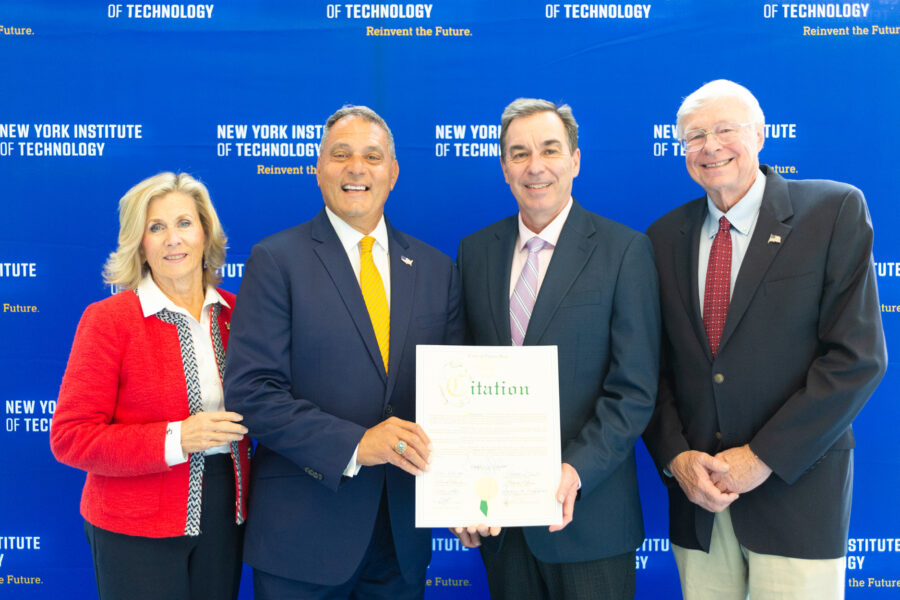
Startup Tech Central Officially Opens
Members of New York Tech and the local community gathered to celebrate the grand opening of Startup Tech Central, a resource for students to transform ideas into real-world impact.
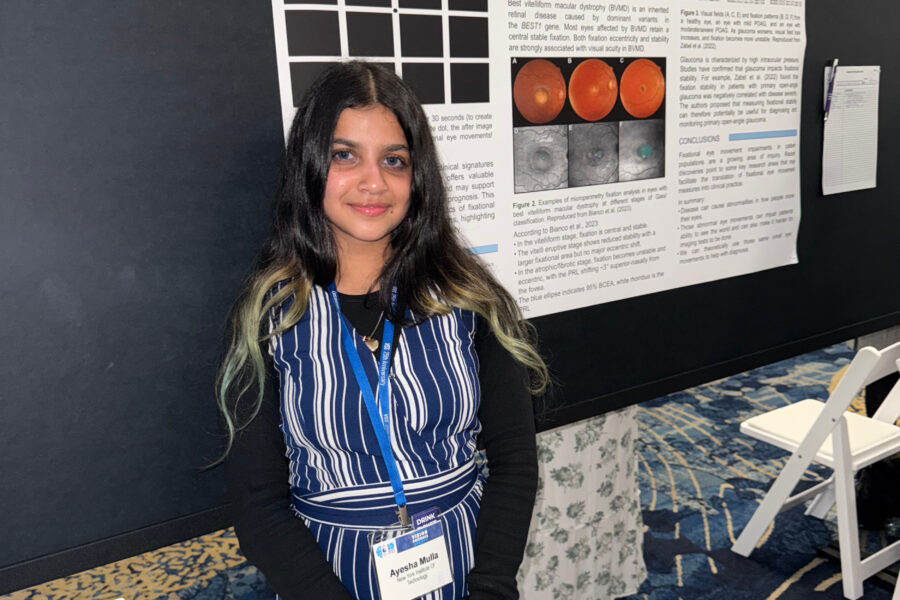
Student’s Research May Help ENTs With Diagnoses
Ayesha Mulla earned a grant from Psi Chi to study visual expertise in ear, nose, and throat doctors (ENT).
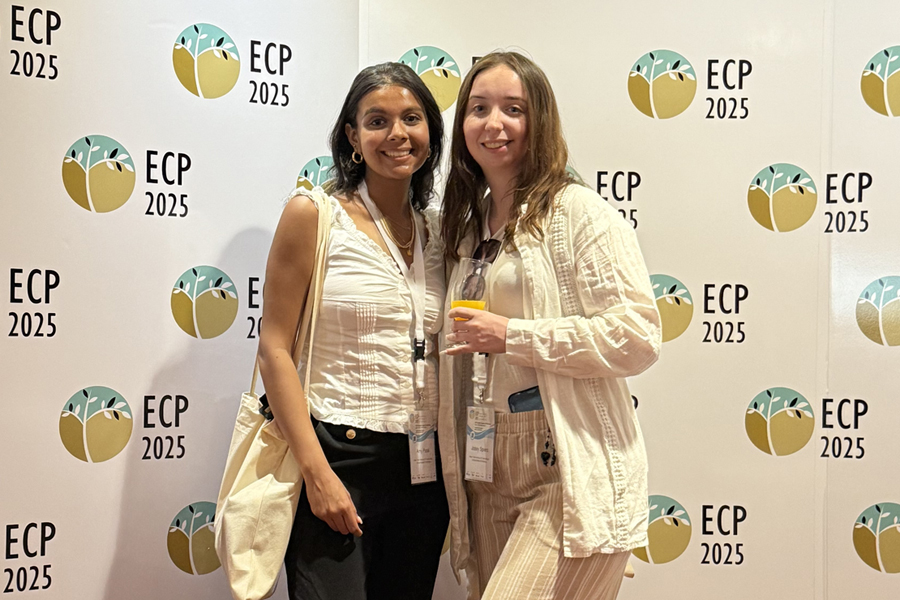
Psychology Alumni Present Research in Cyprus
Over the summer, recent psychology alumni Josey Spiers (B.S. ’25) and Amy Patel (B.S. ’25) presented their work at the European Congress of Psychology in Paphos, Cyprus.
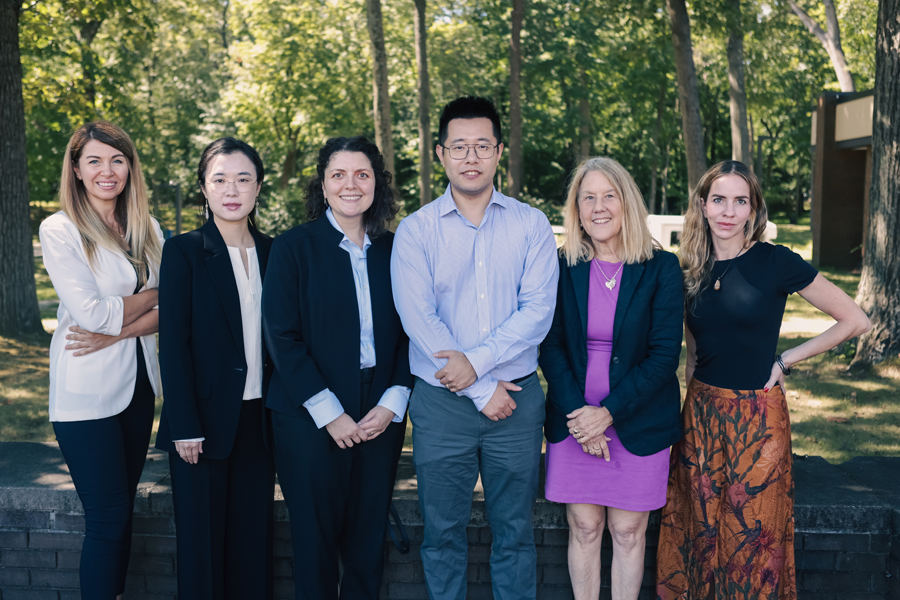
New Academic Year Welcomes New Faculty
New York Tech welcomes new and recently hired faculty to the university for the new academic year.
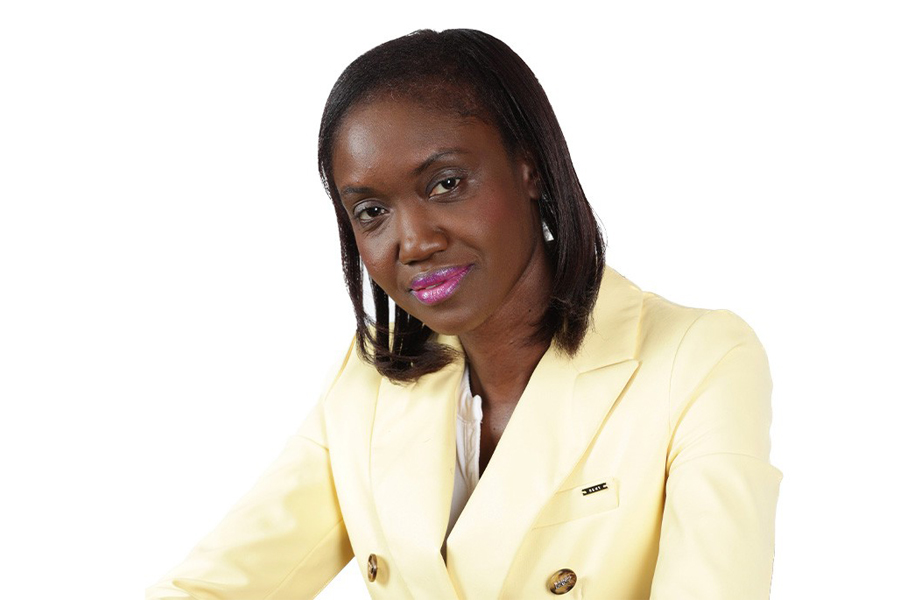
Identifying Signs of Bullying
As back-to-school season approaches, Assistant Professor of Psychology and Counseling Cameka Hazel, Ed.D., shares tips for parents to identify signs of a bully.
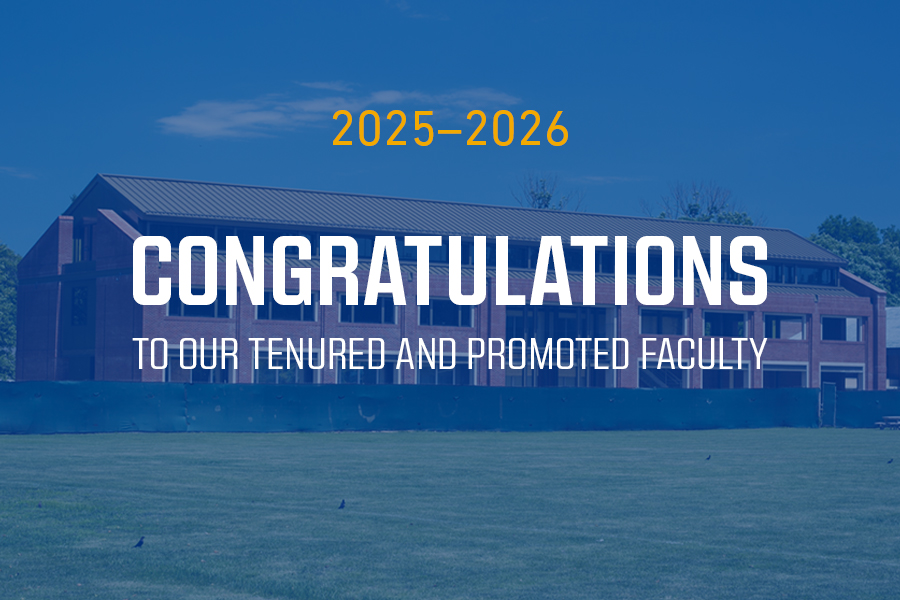
Faculty Tenures, Promotions for 2025–2026
Several faculty members have been recognized for their outstanding teaching, scholarship, service, and commitment to the university and its students through tenure and promotions.